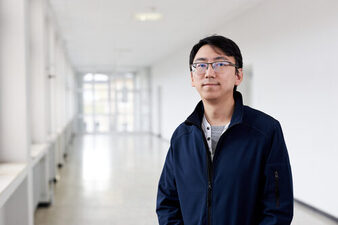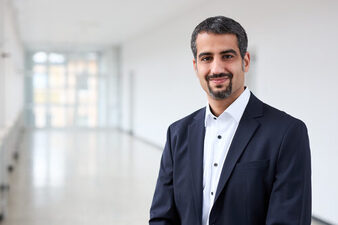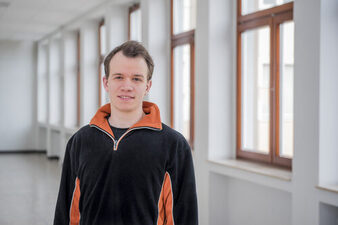Profil
Im Robotic Vision Lab stehen innovative bildgebende Verfahren und robotische Systeme im Mittelpunkt. Das Spektrum reicht von messenden 3D-Endoskopen über hyperspektrale Kameratechnologien für die medizinische Diagnostik bis hin zu robotischen Plattformen wie Manipulatoren und Drohnen.
Messung in der Endoskopie
Ein zentrales Forschungsthema ist die Entwicklung messender Funktionen in der Endoskopie. Ein konkreter Modellfall ist die minimalinvasive Chirurgie bei Endometriose – einer komplexen und häufig unterdiagnostizierten gynäkologischen Erkrankung, bei der Schleimhaut außerhalb der Gebärmutter wächst und die etwa jede sechste Frau im gebärfähigen Alter betrifft. Künftig soll ein messendes Endoskop die exakte Größe von Endometriose-Läsionen bestimmen, um Therapieentscheidungen objektiver zu unterstützen. Die Methoden lassen sich dann systematisch auf andere Krankheitsfälle übertragen.
Darüber hinaus arbeitet das Team an hyperspektralen Bildsensoren, die jedem Gewebebereich einen spektralen „Fingerabdruck“ zuordnen können. Diese Technologie eröffnet damit die Möglichkeit, krankhaftes Gewebe (wie Endometriose oder Tumore) intraoperativ präzise zu erkennen und zuverlässig vom gesunden Gewebe abzugrenzen – selbst bei schwer lokalisierbaren Läsionen.
Intelligente Robotiksysteme
Neben der Medizintechnik erforscht das Labor auch Robotersysteme. Dabei geht es nicht nur um den Aufbau von robotischen Prototypen, sondern z.B. auch um die Entwicklung von Kamerasensoren und (meist KI-gestützten) Bildverarbeitungsverfahren, die Robotern eine präzise Wahrnehmung ihrer Umgebung ermöglichen – von der Objekterkennung über die räumliche Lokalisierung bis hin zur autonomen Navigation in komplexen Szenarien. Typische Anwendungsfelder reichen von Inspektionsdrohnen, die schwer zugängliche Bereiche analysieren, bis zu Manipulatoren, die in Industrie oder Serviceumgebungen flexibel eingesetzt werden können. Das Labor adressiert hier insbesondere auch die Medizinrobotik, wie roboterassistierte Systeme für die minimalinvasive Chirurgie. Diese eröffnen mit robotisch geführten Instrumenten in Kombination mit innovativen Kamerasensoren neue Möglichkeiten, Operationen noch präziser, schonender und sicherer durchzuführen. Damit schließt sich der Kreis durch die Robotik zurück zur Medizintechnik.
Ausstattung
- Mobile Roboter Plattformen (Bodenfahrzeuge, Flugdrohnen)
- 3 Industrieroboter und XY-Lineareinheit
- 5 kollaborative Roboter inkl. Stereo Vision System
- Servo-Greifertechnik und Kraft-Momenten-Sensorik
- Medizinisches 3D-Endoskop und laparoskopische Instrumente
- Hyperspektrale Bildsensoren für VIS/NIR
- LED-Beleuchtungssysteme und Filtertechnik für UV/VIS/NIR
- Kamerasysteme (USB, GigE, Embedded ARM/DSP, 3D-Kameras)
- Prozessorboards mit Multicore-DSPs für anspruchsvolle Signalverarbeitung
- Echtzeit PC-Targets mit NI-Mess-Hardware für die Modell-basierte Entwicklung
- Vision-Workstations mit Bildakquise-Hardware und 3D-Displays




